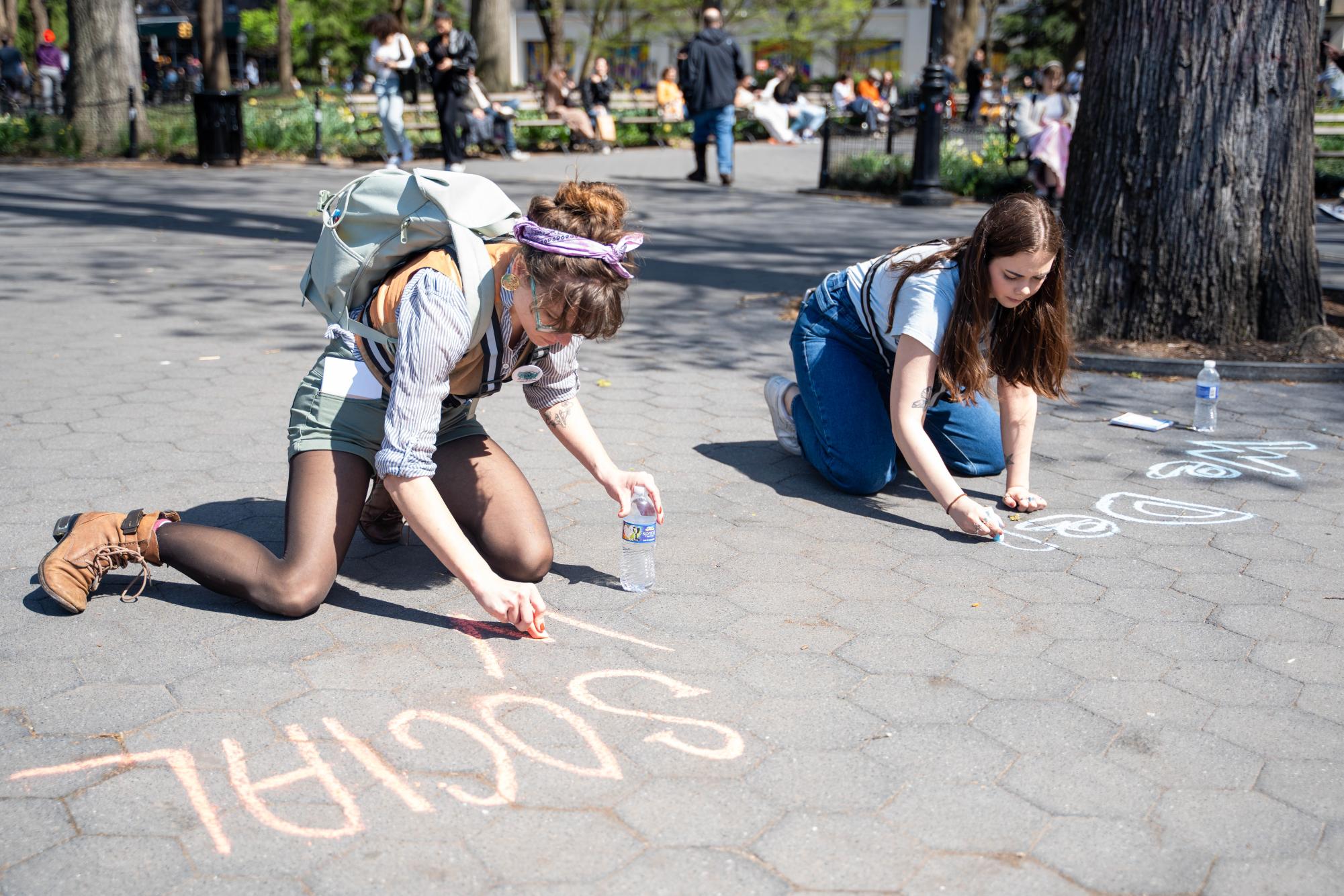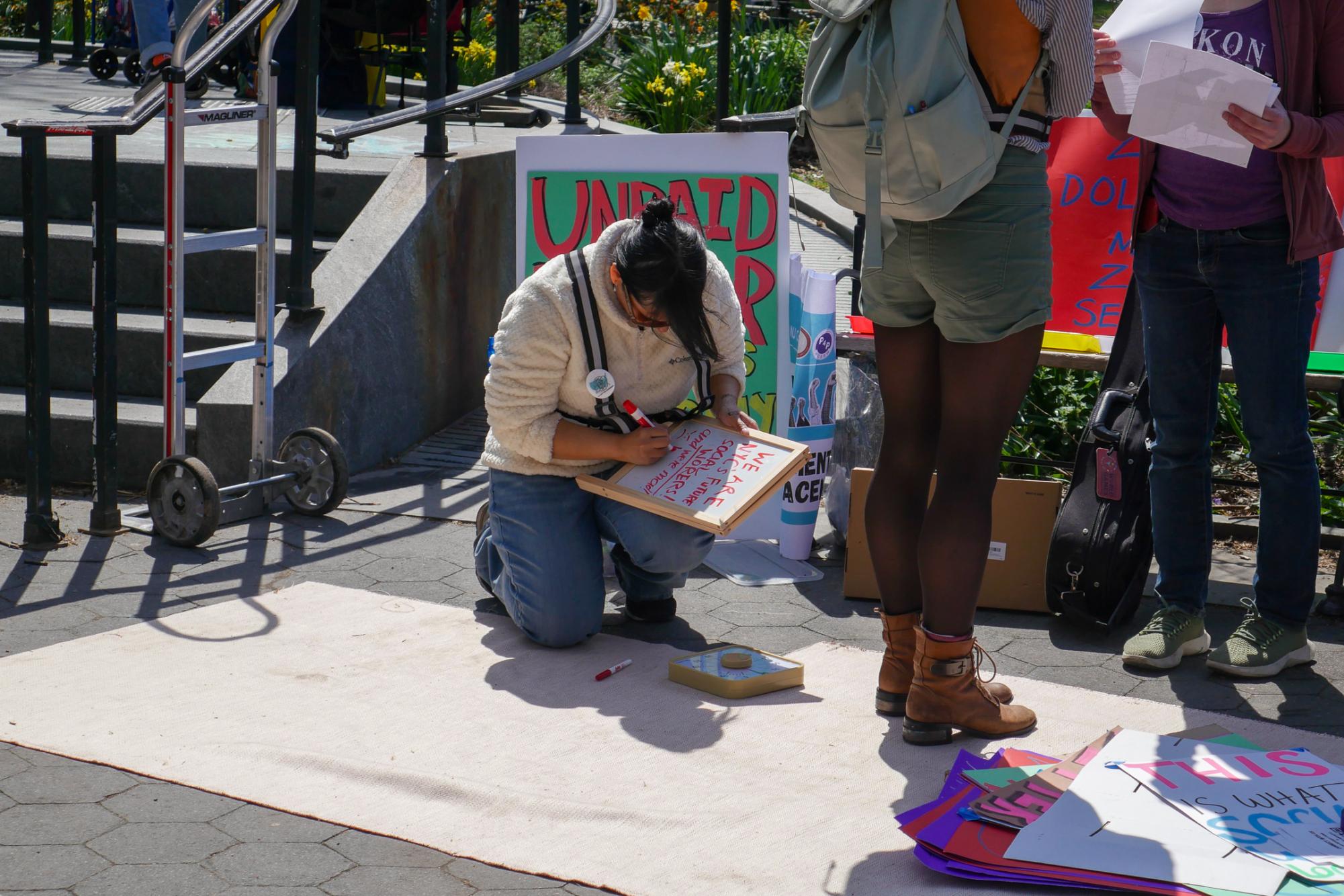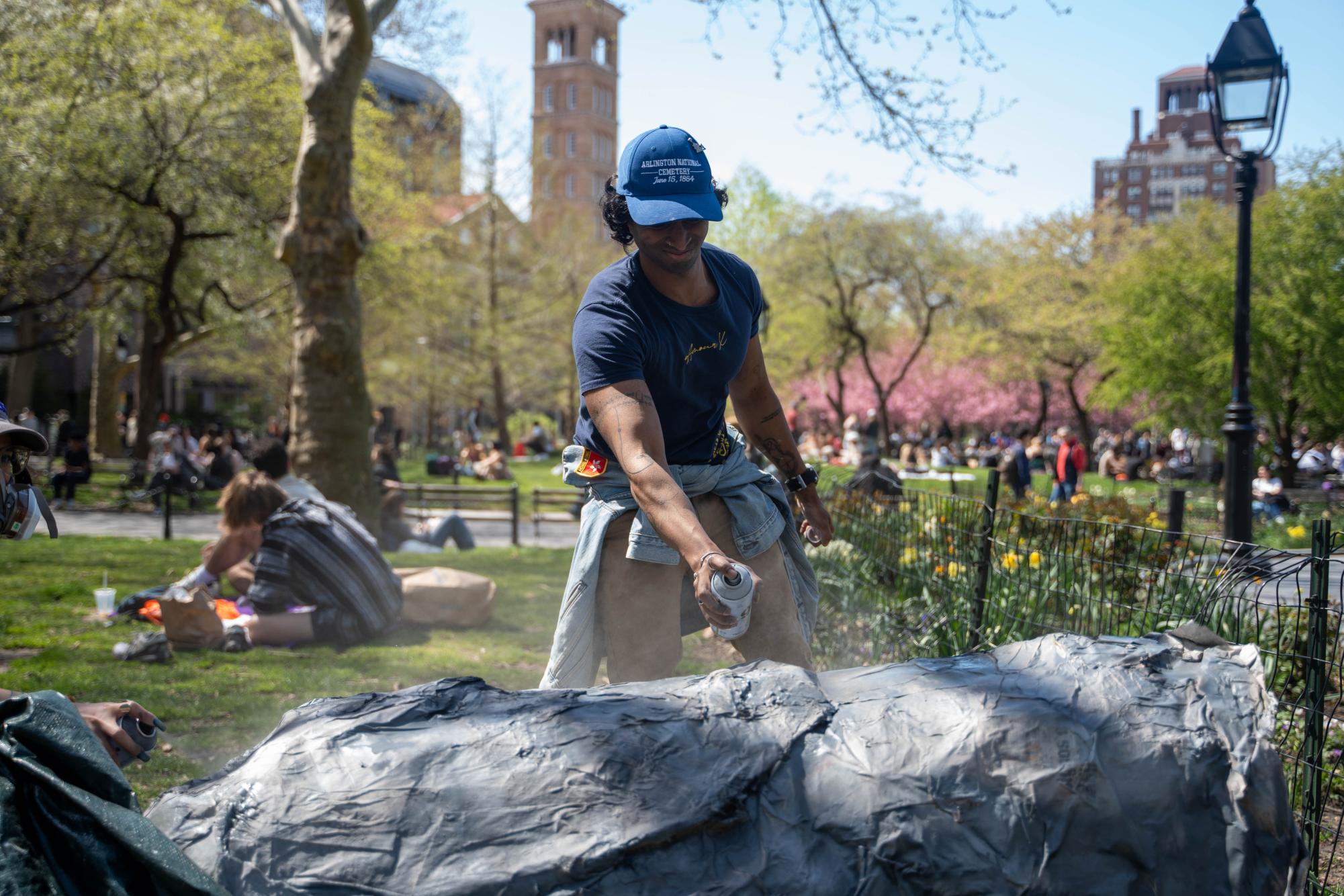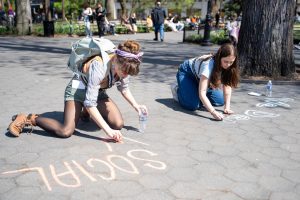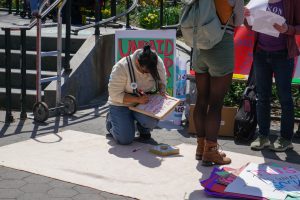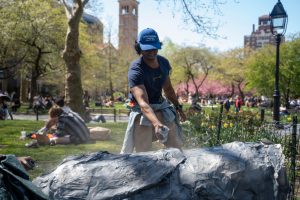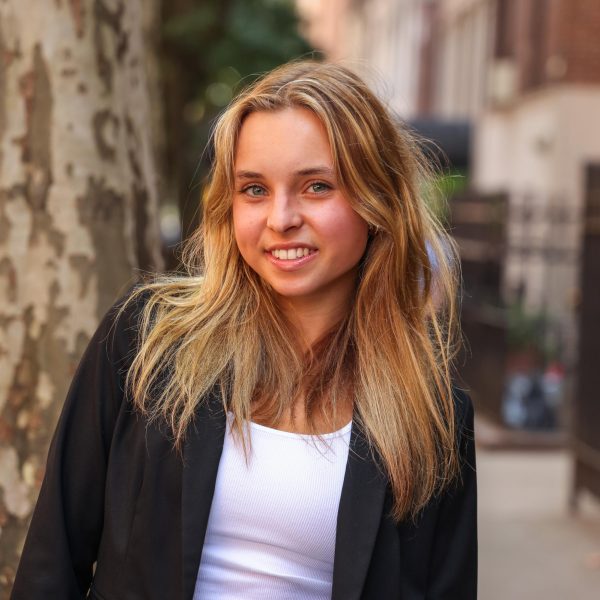Chelsea Trout spends eight hours every Monday at a charter high school in Brooklyn, where she answers phone calls, proctors SATs, oversees school lunches and handles a clinical caseload of 10 students, before heading back to Manhattan for two classes at NYU’s Silver School of Social Work. Trout, a first-year master’s student at Silver, said she had to pick up two additional jobs to sustain herself financially while studying and interning.
As a part of the school’s Master of Social Work program, Trout is required to spend 1,200 hours in a field work, or practicum learning, position — most of which are completely unpaid. Trout is one of many who do not have a say over where they are placed, and said that many of the over 600 different organizations Silver partners with have become reliant on student social workers for “free labor.”
In recent years, students attending social work programs across the country have started to organize for paid field placements and fewer required field hours in a movement called Payment 4 Placements. While Silver has announced that it will lower its practicum learning requirement to 900 hours — the minimum allowed by the Council on Social Work Education — starting in fall 2024, many students are also calling for the school to find a way to pay them for their field hours, either through government funding or NYU’s own budget.
“I am literally stressed to the point of tears,” second-year MSW student at Silver Teresa Wu said in an interview with WSN. “That’s why I’m so passionate about organizing with P4P.”
Wu leads NYU’s chapter of P4P, a nationwide organization that advocates for universities to pay social work students for required internships. She and around 50 other students and professors from P4P chapters across six other universities — Stony Brook University, Columbia University, Rutgers University, Fordham University, Lehman College and Hunter College — gathered in Washington Square Park on Sunday afternoon for a demonstration calling for their institutions to change their program requirements.
Demonstrators held signs and chanted phrases such as “no payments, no peace” and “this is what social work looks like.” Attendees gathered around a papier-mache boulder with painted calls to action that was representative of “undue burdens bourne by social work students,” and wrote protest calls in chalk across Garibaldi Plaza.
The rally also included a speech from Chris Smalls, the president of the Amazon Labor Union, and performances from artists such as Subway DJ and Alvin Dan.
Currently, MSW students enrolled in Silver’s two-year and extended programs must complete 1,200 hours of field learning to graduate, with varyingly lower requirements for other MSW programs. The two-year program is the most popular at Silver. Bachelor’s degrees also require practicum learning hours, with 450 hours completed during a student’s senior year. While bachelor’s degrees require fewer practicum hours to complete, an MSW is needed for clinical, supervisory and specialty positions.
Several other New York MSW programs with students at the event, including Fordham University and Hunter College, have practicum learning requirements of 950 and 900 hours, respectively. Wu said information on NYU’s hour requirements had been kept “close to the Silver community” and that both students and the organizations they interned at received “wishy-washy” communication regarding changes in field learning quotas.
“Asking NYU, or asking individual institutions to pay us, is not a sustainable answer — this needs to come from a federal, state or city grant,” said Risa Shutz, a second-year MSW student at Silver. “I don’t want to fight NYU, that seems like a waste of time or energy and a way to burn out. I wish NYU wanted to work with us in order to achieve this goal that we all have.”
Social work students at the rally said the program’s extensive requirements contribute to a nationwide lack in social workers, particularly within underserved communities. They noted that many of the students who are unable to complete the program for financial reasons come from the marginalized communities social work is intended to help. Students also said that a lack of diversity in the field can be harmful, as many clients would benefit from sharing common ground with their social worker.
Shutz said she was forced to quit her paying job and take on more student loans when she became unable to manage both her course load and her practicum at an LGBTQ+ immigration clinic. She noted a trend in her peers, many of whom she said entered the MSW program with the goal of working with underserved communities, but ultimately shifted to work in higher-paying private practices.
“It’s brutal to know that, and to be going through that, and it makes work really challenging as well,” Shutz said. “I would feel a lot better if I bought a cup of coffee before my internship, but then I’m negative $7 for the day.”
Shutz also said that many first-years enter their practicum learning with little to no training, lowering the quality of work they can provide to their assigned clients and organizations — many of whom she said are already in dire need of extra hands.
Devin Malbreaux, a second-year master’s student at Hunter College’s Silberman School of Social Work, moved back home to save money while completing an unpaid internship in the Bronx where he works with adult mental health patients. He connects patients with resources, hosts individual therapy sessions and facilitates both cognitive and dialectical behavioral group therapy — all in addition to his full-time job as a behavioral health specialist for children.
“I love the work that I do, but I can’t even afford a MetroCard — and yet you expect me to contribute without recognition of my efforts,” Malbreaux said. “It feels defeatist to have all these people enter a field that we know is low-paying. You ask so much of us, but you give us so little.”
A university spokesperson did not immediately respond to a request for comment.
Contact Dharma Niles at [email protected].
























































































































































